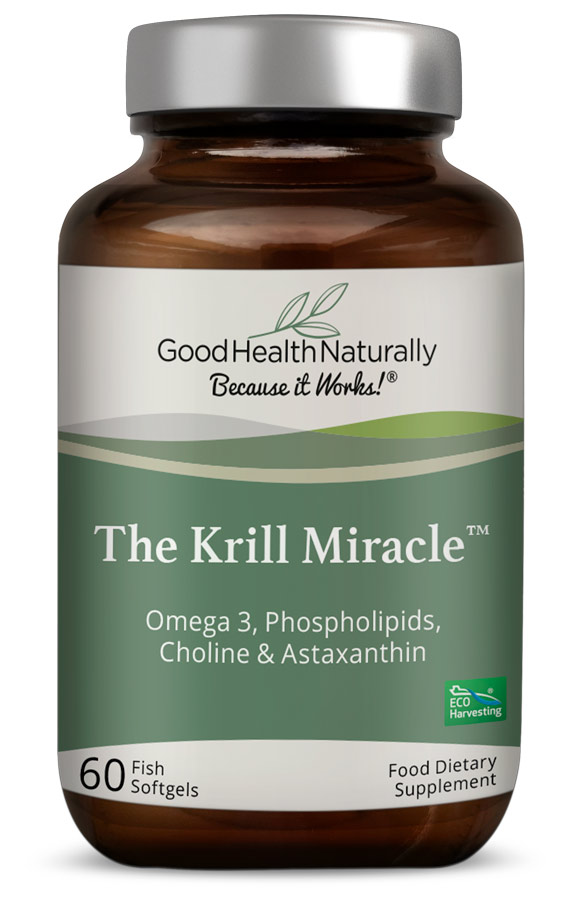As we transition into September, many of you are preparing for a shift in routines with the return to school, college, or work. For many, it’s a time of change and a period of increased stress and activity. Over the past few weeks, we’ve highlighted the importance of self-care and stress management, so take a look back if you’ve missed it! We’ve also discussed the incredible benefits of omega-3s for brain health and focus. This week, we’re continuing with the topic of omega-3s. We are excited to dive into new research into the lesser-known but equally important benefit of these essential fatty acids—skin health, particularly through the use of krill oil.
Omega-3s: A Skincare Essential
You’ve likely heard about the benefits of omega-3 fatty acids for heart and brain health, but did you know they also play a crucial role in maintaining healthy, radiant skin? Omega-3s, particularly EPA and DHA, are essential fatty acids that your body can’t produce on its own. They must be obtained through diet or supplementation.
These fatty acids are integral to the structure and function of skin cell membranes. They help regulate oil production, keep skin hydrated, and reduce inflammation, preventing breakouts and other skin issues. Omega-3s also support the production of collagen and elastin, proteins that maintain skin’s firmness and elasticity.
Exciting New Research on Krill Oil and Skin Health
Recent research has further solidified the role of omega-3s in skin health, particularly through the use of krill oil. Two new studies published in the Journal of Cosmetic Dermatology have shown that krill oil supplementation significantly strengthens the skin’s barrier function while enhancing hydration and elasticity in healthy adults. These studies are particularly compelling, bringing new insights into how krill oil can benefit your skin.
Study Highlights: The Impact of Krill Oil on Skin
The studies were randomised, double-blind, placebo-controlled pilot trials designed to assess the effects of krill oil on skin barrier function and secondary outcomes like hydration and elasticity. Here’s a summary of their findings:
Study Design: Two studies were conducted with 101 healthy adults with normal to slightly dry skin at baseline. Participants in one study took 1 gram of Superba Boost® krill oil daily, while those in the second study took 2 grams daily, with outcomes assessed at baseline, 6 weeks, and 12 weeks.
Results: Both krill oil groups showed significant improvements in skin barrier function, as measured by reductions in transepidermal water loss (TEWL). Additionally, there were significant increases in skin hydration and elasticity compared to the placebo group. These improvements were dose-dependent, meaning those taking higher doses of krill oil saw even greater benefits.
Omega-3 Index: The studies also found a strong correlation between the improvements in skin health and increases in the Omega-3 Index (the percentage of EPA and DHA in red blood cells). This suggests that the higher levels of omega-3s in the bloodstream directly contribute to better skin health.
Why Krill Oil?
Krill oil is a particularly potent source of omega-3s, especially EPA and DHA. What sets it apart is that these fatty acids are bound to phospholipids, making them more easily absorbed by the body than the triglyceride form found in fish oil. This unique composition allows krill oil to support the skin’s lipid barrier more effectively, helping to lock in moisture and protect against environmental stressors.
Phospholipids also have the remarkable ability to both attract and repel water, making them perfect for retaining hydration within the skin. Moreover, krill oil contains astaxanthin, a powerful antioxidant that further protects the skin from oxidative stress and UV damage.
Practical Tips for Glowing Skin
 Supplement with Krill Oil: To experience the benefits highlighted in the studies, consider incorporating krill oil into your daily routine. 1-2 capsules daily may significantly improve your skin’s barrier function, hydration, and elasticity.
Supplement with Krill Oil: To experience the benefits highlighted in the studies, consider incorporating krill oil into your daily routine. 1-2 capsules daily may significantly improve your skin’s barrier function, hydration, and elasticity.
Eat Omega-3-Rich Foods: In addition to supplements, include omega-3-rich foods like fatty fish, flaxseeds, and walnuts in your diet. These will help boost your overall omega-3 intake, supporting both your skin and general health.
Hydrate and Protect: Remember to drink plenty of water and protect your skin from harsh environmental factors like UV rays. Hydrated skin is healthy skin, and omega-3s can help retain that moisture from within.
Conclusion: Your Skin’s New Best Friend
As we’ve seen, krill oil is not just a supplement for heart and brain health—it’s also a powerful tool for achieving and maintaining healthy, glowing skin. The studies reinforce the importance of omega-3s in supporting skin health, making krill oil a must-have in your skincare regimen. As you gear up for September’s busy routines, don’t forget to give your skin the care it deserves.




